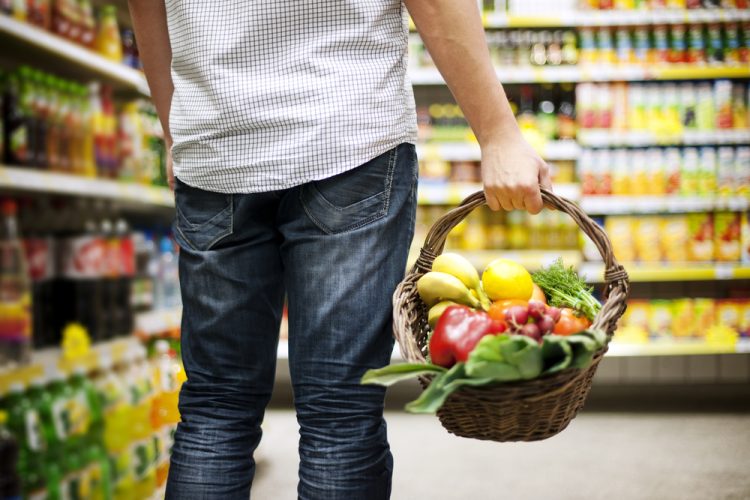Urgent call for VAT reform to drive healthier, sustainable eating choices
- Like
- Digg
- Del
- Tumblr
- VKontakte
- Buffer
- Love This
- Odnoklassniki
- Meneame
- Blogger
- Amazon
- Yahoo Mail
- Gmail
- AOL
- Newsvine
- HackerNews
- Evernote
- MySpace
- Mail.ru
- Viadeo
- Line
- Comments
- Yummly
- SMS
- Viber
- Telegram
- Subscribe
- Skype
- Facebook Messenger
- Kakao
- LiveJournal
- Yammer
- Edgar
- Fintel
- Mix
- Instapaper
- Copy Link
Posted: 12 February 2025 | Ben Cornwell | No comments yet
A new study led by University College London reveals how food VAT reforms could transform diets, reduce emissions and boost public health.


A new study led by researchers at University College London (UCL) reveals that adjusting Value Added Tax (VAT) rates based on health and environmental impacts could encourage healthier and more sustainable diets in the UK and EU.
Published in Nature Food, the study examined the effects of VAT rates on food groups and suggested that changes to tax policy could reduce diet-related diseases, lower emissions and generate significant economic benefits.
Food tax systems ‘currently not fit for purpose’
The research, led by Professor Marco Springmann of UCL Institute for Global Health and University of Oxford, found that modifying VAT rates for food items according to their health and environmental consequences could achieve positive outcomes for public health and the environment while also boosting government revenues.
“When it comes to food, the tax systems across the EU and the UK are currently not fit for purpose. A modern tax system that addresses the critical health and environmental challenges of the food system is urgently needed,” said Professor Springmann.
“Adjusting the VAT rates of food groups based on their health and environmental impacts is as good as a no-loss policy gets whilst delivering benefits for public health, the environment, and even government revenues.”
The economic and health costs of poor diets
Currently, basic foods in the UK like raw meat, fish, vegetables and fruits are zero-rated for VAT. However, the study suggests that increasing VAT on meat and dairy products, while maintaining the zero-rating on fruits and vegetables, could prompt consumers to reduce their intake of animal-based foods. Specifically, applying the full 20 percent VAT rate to meat and dairy could reduce consumption of both groups by one portion per week across EU countries. In the UK, this effect would be doubled, with two fewer portions consumed per week.
This shift could significantly reduce the prevalence of diet-related diseases such as heart disease, stroke, cancer and diabetes. The researchers estimate that such dietary changes could prevent up to 170,000 deaths across the UK and EU, with over 2,000 fewer deaths in the UK alone.
The current financial burden of diet-related diseases is staggering. In the UK, healthcare costs associated with obesity alone are estimated to reach £6.5 billion annually, with wider costs to the economy, such as lost productivity, adding up to £27 billion per year. Across the EU, the economic toll of poor diet and associated diseases amounts to an estimated €70 billion annually. These figures underscore the potential long-term savings that could arise from shifting consumption patterns through tax policy reforms.
Therefore, from an economic perspective, while the dietary changes would keep costs affordable for consumers, they would potentially generate substantial tax revenues. The study estimates that increasing VAT on meat and dairy products could result in £36 billion in additional tax receipts across the UK and EU, contributing an extra 0.2 percent to GDP. In the UK alone, this would mean a 0.6 percent increase in GDP.
Environmental considerations
Reducing demand for beef and dairy would also cut climate-warming gas emissions by an amount equivalent to Scotland and Northern Ireland’s combined output. In the UK, emissions would be reduced by the equivalent of half of London’s emissions.
Additionally, agricultural land use would shrink, freeing up space between the size of Wales in the UK and Ireland’s landmass in Europe. Water pollution would also see a notable decline, with a projected 10 percent reduction in water pollution.
Professor Springmann concluded, “In the UK and many European countries, value added taxes (VAT) on foods are often reduced but without a clear justification.
“Setting VAT rates based on health and environmental considerations could have large implications for people’s health and the environment, alongside generating money for the economy.”
Related topics
Environment, Health & Nutrition, The consumer, Trade & Economy, World Food







